 Petzlover
Petzlover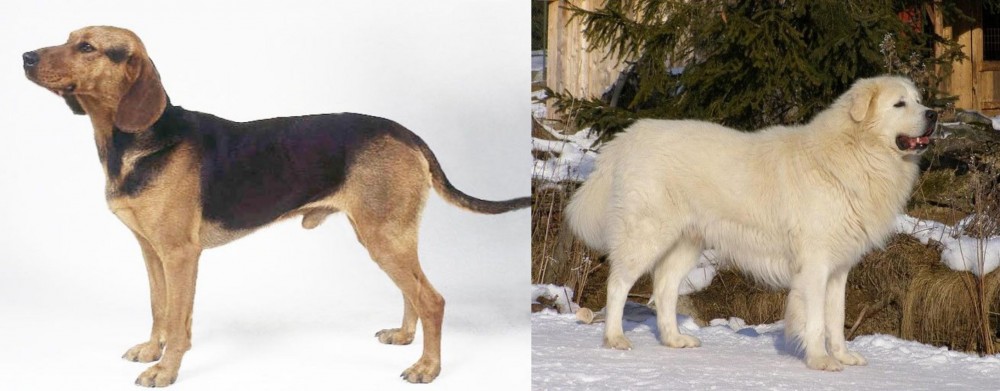 Serbian Hound is originated from Serbia but Slovak Cuvac is originated from Slovakia. Serbian Hound may grow 14 cm / 5 inches shorter than Slovak Cuvac. Serbian Hound may weigh 21 kg / 46 pounds lesser than Slovak Cuvac. Both Serbian Hound and Slovak Cuvac has almost same life span. Both Serbian Hound and Slovak Cuvac has almost same litter size. Serbian Hound requires Low Maintenance. But Slovak Cuvac requires Moderate Maintenance
Serbian Hound is originated from Serbia but Slovak Cuvac is originated from Slovakia. Serbian Hound may grow 14 cm / 5 inches shorter than Slovak Cuvac. Serbian Hound may weigh 21 kg / 46 pounds lesser than Slovak Cuvac. Both Serbian Hound and Slovak Cuvac has almost same life span. Both Serbian Hound and Slovak Cuvac has almost same litter size. Serbian Hound requires Low Maintenance. But Slovak Cuvac requires Moderate Maintenance
 Once known as the Balkan Hound, the Serbian Hound is a scenthound, an ancient dog breed that dates back to the 11th century. He has always been a hunting dog, hunting in packs, but today he is essentially a pet and a companion.
Once known as the Balkan Hound, the Serbian Hound is a scenthound, an ancient dog breed that dates back to the 11th century. He has always been a hunting dog, hunting in packs, but today he is essentially a pet and a companion.
Although the breed is very popular in Serbia, they have not spread much outside of the Balkan region. The first description of the Serbian Hound dates from 1905. The first standard for the dog was published in 1924.
This dog isn’t recognized by the AKC but he has been recognized by the FCI in 1940 and in 2006 by the United Kennel Club.
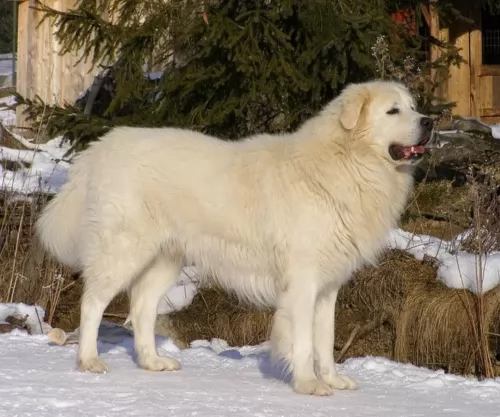 Looking quite a bit like the Pyrenean Mountain Dog, the Slovak Cuvac is a large dog that has served as a guard dog. The Slovensky Cuvac is still used on sheep farms as he isn’t afraid of wolves and bears and will take them on if needs be.
Looking quite a bit like the Pyrenean Mountain Dog, the Slovak Cuvac is a large dog that has served as a guard dog. The Slovensky Cuvac is still used on sheep farms as he isn’t afraid of wolves and bears and will take them on if needs be.
Records of this dog have been kept since the 17th century already, and when the breed started dying out, a certain Dr Antonin Hruza put in efforts to revive the dog.
The registered breeding of the Slovensky Cuvac was established in Czechoslovakia and a club for the dog was established in 1933. A written standard was established in 1964. The dog is not recognized by the Fédération Cynologique Internationale.
 The Serbian Hound isn’t a particularly large dog. He is medium sized, standing at between 44 to 56cm in height and weighing in the region of 11 to 23kg. The coat of the dog is a red or tan color with a black saddle.
The Serbian Hound isn’t a particularly large dog. He is medium sized, standing at between 44 to 56cm in height and weighing in the region of 11 to 23kg. The coat of the dog is a red or tan color with a black saddle.
The hair is short, thick and shiny with the hair being slightly longer over the thigh area. The ears are high set, are of medium length and are floppy. The average litter size for these dogs is 3 to 6 puppies.
The good-natured Serbian Hound makes a loving and devoted pet. He’ll get on well with children too. They’re friendly dogs with a relaxed disposition, but to maintain that easy going characteristic, they will need to be well exercised.
They’re intelligent dogs with an independent side to them, and some training and socialization will be recommended.
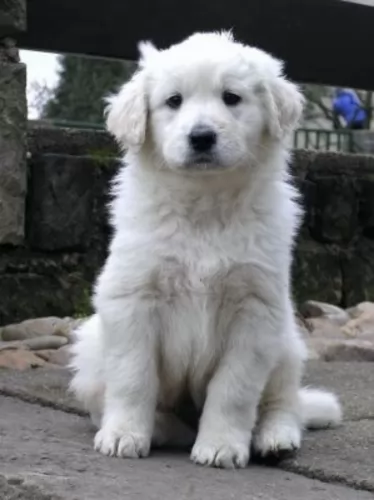 This is a large dog standing at between 59 and 70cm in height and weighing between 31 and 44kg.
This is a large dog standing at between 59 and 70cm in height and weighing between 31 and 44kg.
The neck is broad and has quite a bit of fur around it. The head is large, the eyes dark brown, the double coat is white and thick and medium length. The eyes are brown, the ears medium length and floppy and the tail long and furry.
This is a robust dog, used to spending time outdoors keeping watch over livestock. When he is invited into the home, he is gentle and well behaved, more so when he has been trained and socialized.
He is loving and loyal towards his human family and will get on well with children in the home. He isn’t the brightest dog but you can still have him trained.
 The Serbian Hound is a working dog that just loves being busy, and he can keep busy for a long time as he has plenty of stamina.
The Serbian Hound is a working dog that just loves being busy, and he can keep busy for a long time as he has plenty of stamina.
He is an easy going dog, laid back, social and lively as well as being loving and loyal. They’re independent and strong-willed as well as being intelligent. You shouldn't have any difficulty training and socializing him, and it will round your pet off nicely, making him an even better companion and pets.
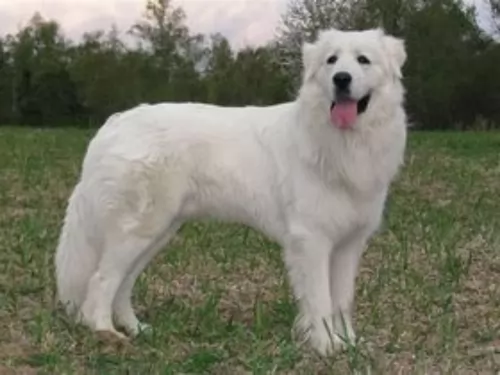 Your playful Slovak Cuvac is an affectionate dog, wanting nothing more than to be totally involved in his family’s life.
Your playful Slovak Cuvac is an affectionate dog, wanting nothing more than to be totally involved in his family’s life.
He is social and loving and also makes an excellent watchdog. He’s a big dog so think carefully before you bring him into your home. Many dog owners like the look of a big dog and forget that it costs a lot of money to feed a big dog and to pay for vet fees.
This big dog is wanting to be part of your family and not just to be discarded when you find that he is costing you too much.
 Your Serbia Hound can live to be 12 to 15 years of age, but just like with other dogs, he will need to be watched for some of the common dog diseases there are. Cancer, bloat, skin infections and kennel cough are all diseases to look out for.
Your Serbia Hound can live to be 12 to 15 years of age, but just like with other dogs, he will need to be watched for some of the common dog diseases there are. Cancer, bloat, skin infections and kennel cough are all diseases to look out for.
Ear infections are common in dogs with floppy ears. You need to check inside your dog’s ears as an ear infection can be a painful condition. You’ll see your dog scratching at his ears and shaking his head.
Most ear infections are caused by bacteria and yeast or even ear mites. You can’t play around with an ear infection and the veterinarian will take a sample from the affected ear. Most people don’t like to fiddle around with the inner ear and prefer to leave this grooming part to the vet or a professional groomer.
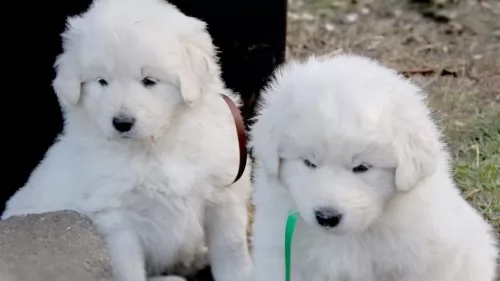 This is a healthy dog breed, but as with many large dogs, hip dysplasia is a threat. Hip dysplasia is always reason for concern as the condition can reduce a dog’s quality of life.
This is a healthy dog breed, but as with many large dogs, hip dysplasia is a threat. Hip dysplasia is always reason for concern as the condition can reduce a dog’s quality of life.
It is distressing seeing your once active pet becoming reluctant to play and move around.
Canine hip dysplasia is a common skeletal condition. It can strike any size dog but is more prevalent with large dogs. The ball and socket of the hip doesn’t fit properly and deterioration sets in resulting in loss of function of the joint.
You will need to get your dog to the vet who will perform a physical exam and discuss treatments to alleviate the pain your dog can experience.
 Serbian Hounds with their short coats are low maintenance. Yes, they do shed throughout the year, and have some seasonal shedding. A good brush twice a week will be adequate for this dog.
Serbian Hounds with their short coats are low maintenance. Yes, they do shed throughout the year, and have some seasonal shedding. A good brush twice a week will be adequate for this dog.
Check your Serbian Hound’s ears and eyes for infection. Also, as you brush him, take note of any new or unusual lumps you come across.
As a medium-sized dog, if you choose to feed your dog kibble, it will need to be according to size, his age and activity levels. Read the labels carefully to make sure you know how to feed your Serbian Hound the best way.
Choose kibble that has a good selection of vitamins and minerals in it. Try and provide your pet with some home made food too and add it twice a week to the dry kibble to give him some variety and a tasty treat.
Boiled chicken, brown rice, sweet potatoes, carrots and spinach are simple foods – good for a dogs digestion. By also adding a bit of raw meat to his food you help him maintain a healthy coat and skin.
As a hunting breed, this dog has a lot of stamina and energy. He is going to require a good deal of exercise every day. Walks are always a good thing but he’ll want more energetic action – runs, ball games and some swimming.
Toys and equipment that can provide him with mental stimulation will be good for him too as he is a mentally sharp dog.
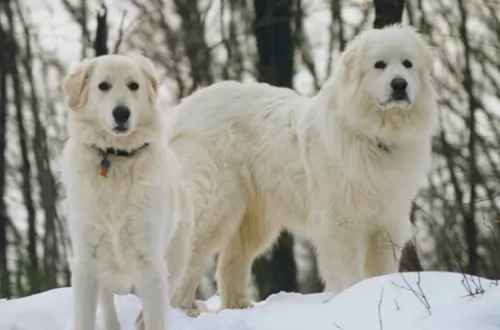 ◆The thick white hair will require regular grooming to keep it free from burrs and dirt. He sheds so this brushing will help him to look more groomed.
◆The thick white hair will require regular grooming to keep it free from burrs and dirt. He sheds so this brushing will help him to look more groomed.
◆The nails should be trimmed regularly and the ears too should be checked for redness and infection. You’ll need to look inside his mouth too as a rotting tooth can cause havoc within his body. A rotten tooth can also cause him tremendous pain and he has no way of telling you this.
◆Have your pet spayed or neutered if you don’t want any puppies. This is better for your dog’s health in the long run too.
◆Your Slovak Cuvac is going to need a lot of exercise as they have always been used to roaming the mountains watching over livestock.
◆This is a big dog so if you buy commercially manufactured food, make sure its for large, energetic dogs. There are good commercially manufactured dog foods on the market – just make sure you buy the best one for your pet to enhance health and longevity.
Try and give him some home made food too. Healthy food which won’t jeopardise his digestion is boiled chicken, brown rice or pasta and spinach, sweet potatoes and carrots. These can all be chopped up and small portions mixed into the dry kibble twice a week as a treat.
Try and include some raw meat occasionally. Your dog will thank you for not giving him exotic people foods which can do lots of harm. Ensure there is always a bowl of fresh, cool water within his reach.